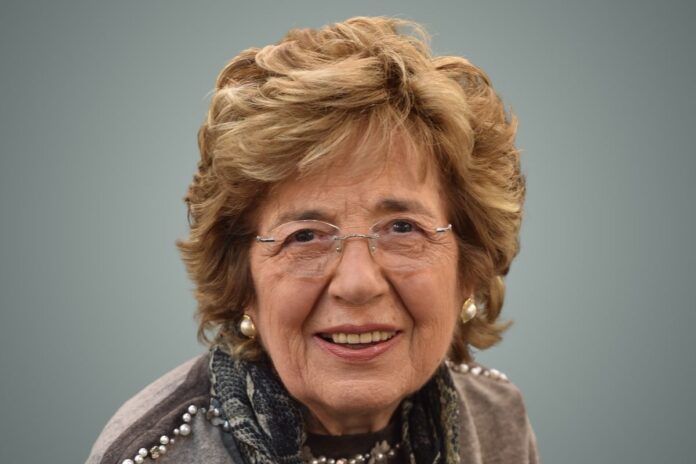Sofia Corradi, also known as “Mamma Erasmus,” is the mind behind the Erasmus Program. Her vision for educational exchange has transformed the academic landscape across Europe, providing countless students the opportunity to study abroad.
Sofia Corradi: The Visionary Behind the Erasmus Program
Introduction
Imagine a world where studying abroad wasn’t easily accessible. Today, students across Europe freely cross borders to learn, make friends, and experience new cultures, thanks to the Erasmus Program. But who made this possible? Meet Sofia Corradi, a pioneering figure often called “Mamma Erasmus” for her instrumental role in founding the program. Her story is one of resilience, innovation, and a passion for accessible education. This article explores Corradi’s life, her vision for Erasmus, and the global impact of her work.
Sofia Corradi’s Early Life and Academic Journey
Sofia Corradi was born in Rome, Italy, in 1934. From a young age, she displayed a strong interest in education and social issues. She went on to study law at the Sapienza University of Rome, later earning a Master’s degree in Comparative Law from Columbia University in New York. Corradi’s experiences as a student abroad shaped her outlook and planted the seeds for the Erasmus Program.
In the 1960s, after returning to Italy, Corradi wanted her academic credits from Columbia recognized in Italy. Frustrated by the bureaucracy that prevented her credits from being validated, she was inspired to ensure future students wouldn’t face the same barriers.
The Birth of the Erasmus Idea
The idea of Erasmus was born out of Corradi’s belief that studying abroad should be an integral part of the academic journey. She envisioned a program that would allow students to gain international experience without facing the challenges she encountered. Over the years, she shared her vision at conferences, seminars, and with policymakers across Europe. Her perseverance paid off in 1987, when the European Community (now the European Union) officially launched the Erasmus Program.
Why “Erasmus”?
Named after the Renaissance humanist Erasmus of Rotterdam, who traveled extensively across Europe, the Erasmus Program is a fitting tribute to the ideals of cross-cultural exchange and intellectual growth.
How the Erasmus Program Transformed Education
Since its inception, the Erasmus Program has revolutionized higher education across Europe and beyond. The program offers:
- Academic Exchange: Students can study or intern in a foreign country while receiving academic credit.
- Cultural Exposure: Erasmus encourages students to embrace cultural diversity, leading to better social integration and cross-cultural friendships.
- Language Skills: Living abroad allows students to practice new languages, boosting their proficiency and confidence.
- Career Opportunities: Erasmus alumni often find their international experience attractive to employers, leading to better job prospects.
Today, Erasmus has expanded into Erasmus+, encompassing various educational exchanges for students, staff, and youth workers. This evolution continues to broaden its impact on European education.
Sofia Corradi’s Legacy and Recognition
Sofia Corradi’s contributions to education have earned her numerous accolades, including the prestigious Carlos V European Award in 2016. This award recognized her as a pivotal figure in shaping European unity and cultural exchange. Despite her success, Corradi remains humble, emphasizing the collaborative effort behind Erasmus.
Quotes and Tributes
Corradi has often said, “Education is the key to understanding and peace.” Her words resonate with Erasmus alumni, who often refer to their experience as life-changing. Leaders in education and former Erasmus students praise her work for fostering unity across borders.
The Erasmus Impact: Statistics and Success Stories
Since its founding, the Erasmus Program has seen impressive growth:
- Over 10 million students have participated in Erasmus+.
- Erasmus alumni are 50% more likely to find a job within a year of graduation.
- 95% of students feel their Erasmus experience positively impacted their personal and professional development.
FAQ: Frequently Asked Questions about Sofia Corradi and the Erasmus Program
Q: Why is Sofia Corradi called “Mamma Erasmus”?
A: Corradi earned this affectionate nickname for her role in creating the Erasmus Program, which has positively influenced millions of students across Europe.
Q: What inspired Sofia Corradi to create Erasmus?
A: Her struggle to have her American university credits recognized in Italy motivated her to advocate for a program that would make studying abroad accessible and academically validated across Europe.
Q: How has the Erasmus Program expanded since it started?
A: Initially focused on student exchanges, Erasmus has expanded into Erasmus+, which includes broader programs for teachers, youth workers, and vocational training across Europe.
Q: What are the benefits of participating in the Erasmus Program?
A: Erasmus provides academic credit, promotes cultural exchange, improves language skills, and enhances career prospects.
Q: How does the Erasmus Program contribute to European unity?
A: By fostering connections and understanding across countries, Erasmus strengthens cultural ties and unity within Europe.
Wrapping Up: Sofia Corradi’s Lasting Impact
Sofia Corradi’s vision of accessible education through cross-border exchange has left an indelible mark on Europe. Thanks to her, millions of students have been empowered to study abroad, enrich their lives, and gain skills for a globalized world. As “Mamma Erasmus,” Corradi’s legacy reminds us that one person’s passion for change can impact an entire continent.




